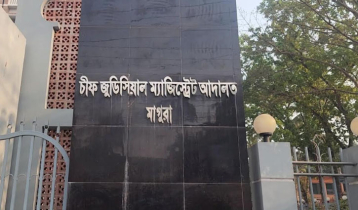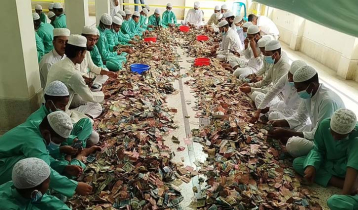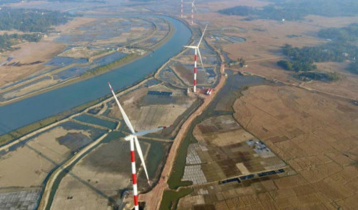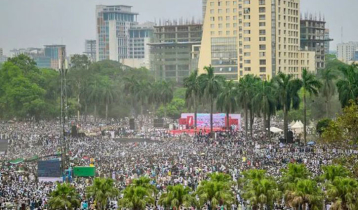Passenger train begins operations on Jamuna Railway Bridge
Sirajganj Correspondent || risingbd.com
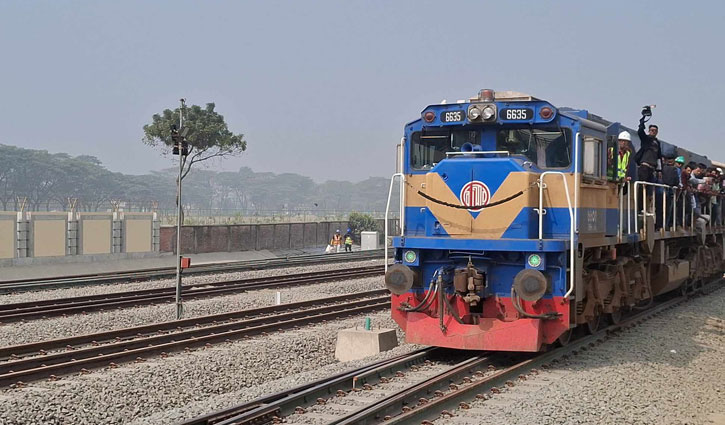
Passenger train began operations on the Jamuna Railway Bridge, country’s longest railway bridge constructed over Jamuna river.
The Dhaka-bound Silk City Express from Rajshahi arrived at Soidabad Railway Station at 10:30 am on Wednesday (February 12) and left the station at 11:12 am. Later, the train reached Ibrahimabad Railway Station after traversing the Jamuna Railway Bridge at 11:18 am.
Moniruzzaman, station master of Soidabad Railway Station, confirmed the information on Wednesday (February 12) noon.
Project Director Al Fattah Md Masudur Rahman said, “The passenger train crossed the Jamuna Railway Bridge today. Other trains will follow in phases as per schedule.”
Commercial operations will officially begin on February 18, he added.
According to project detail, the total length of the bridge is 4.8 kilometres, which is the largest dedicated rail bridge of the country, was constructed with the involvement of Taka 16,780 crore.
It said necessary preparations were underway to begin for commercial operation in February, as test run and other measurement were completed.
According to the project detail, the cost of the project has been estimated at Tk 16,780.95 crore, of which Tk 13,000 crore has been allocated for construction work and over Tk 3,000 crore is fixed for other cost.
It said the construction work was done with the financial support of the Japan International Cooperation Agency (JICA). JICA has provided around Tk 12,000 crore, while the rest of money came from the Government of Bangladesh (GOB) fund.
Two Japanese joint-venture farms have been carrying out the main work of the project initiated in 2016, it said.
The dual-gauge double-track bridge, having gas pipeline facility, is being built some 300 metres upstream of the Bangabandhu Bridge, having a single rail line.
In December 2016, the Executive Committee of the National Economic Council (ECNEC) passed the bridge project at a cost of Tk 9,734 crore with the deadline of completing the project by December 2023.
But the physical work of the project started in August 2020 and the foundation work of the bridge began in March 2021.
The rail bridge would also have a positive impact on the country’s Gross Domestic product (GDP) growth.
The railway bridge would improve the capacity of Bangladesh Railway (BR) in operating more trains between the capital and western part of the country. It would also help reduce train delays.
The new rail bridge will have the capacity to operate 88 trains daily, while a maximum of 22 trains could travel smoothly on single line dual gauge Bangabandhu Bridge a day.
Dhaka/Aditya/AI

